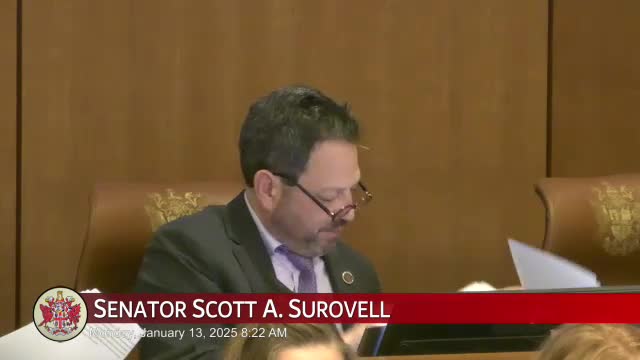Committee debates raising minimum juvenile-delinquency age to 11; questions on CHINS and detention process
Get AI-powered insights, summaries, and transcripts
Subscribe
Summary
Senate Bill 778, which would raise the minimum age at which a child can be adjudicated delinquent to 11, prompted extensive questioning about how CHINS procedures, detention authority and funding would apply to younger children.
Senate Bill 778 returned to the Courts of Justice Committee Wednesday for a lengthy debate over how Virginia would treat alleged delinquent acts by children younger than 11.
Sponsor Senator Locke said this year’s bill is similar to last year’s and includes new language to make services available to children younger than 11. “It amends lines 348 to 350 to provide funding for children under age 11,” a committee counsel summarized during the hearing.
Committee members and witnesses spent much of the discussion on process questions: under the proposed change, how would the system determine whether a child under 11 had committed an act that would be delinquent if committed by an older child, and what detention or protective authority would apply? James Tuohy of the Department of Juvenile Justice warned the bill, as drafted, could create a presumption problem: “It seems to me that the bill is relying upon a presumption of guilt rather than a presumption of innocence,” Tuohy said, asking how a “finding” could be made without adjudicatory hearings.
Valerie Slater of Rise for Youth (and criminal defense attorney/NAACP criminal-justice chair) explained a drafting approach already proposed as a “friendly amendment”: change wording from “found” to “alleged” so children under 11 could be eligible for services without an adjudication. Several members, including Senator Perry and committee counsel, discussed relying on the CHINS (child in need of services or supervision) process as the vehicle to bring young children into court and secure services while avoiding delinquency adjudications.
Senator McDougall pressed on immediate-scene authority: if a 10-year-old presents an imminent danger (for example, an active weapon), what authority would law enforcement have? Committee counsel and juvenile practitioners replied that current statutory provisions (including Va. Code §16.1‑246, discussed in the hearing) allow officers to take a child into immediate custody when there is a clear and substantial danger to life or health or where custody is necessary to ensure appearance before the court.
Committee staff supplied data during questions: there were 222 young people between 2019–2022 discussed in the hearing, and 538 petitions for children under age 11 the previous year (numbers summarized from court intake data presented to the committee). Another set of figures for 2024 cited 121 intake complaints for children under 11, of which 31 were felonies and 88 were misdemeanors; over a four‑year span 2.8% of cases involving children under 11 that were petitioned were adjudicated delinquent (about six complaints over four years).
After additional discussion about drafting clean‑up, the chair concluded the committee would refine the language (for example, inserting the word “alleged” and clarifying cross‑references to CHINS procedures) and bring revisions back at the next meeting; the sponsor indicated staff would prepare amendments for the following Wednesday. No roll‑call vote on final passage was recorded in the transcript — the committee moved to report the bill earlier in the hearing but agreed further technical edits were needed and staff will circulate a revised substitute.
Key unresolved points for members included whether CHINS procedures should be explicitly referenced in the bill, how funding lines referenced in the draft operate (committee counsel said some funding language in lines 358–361 duplicated existing appropriations), and how immediate custody rules and detention authorities would function in practice for very young children.
